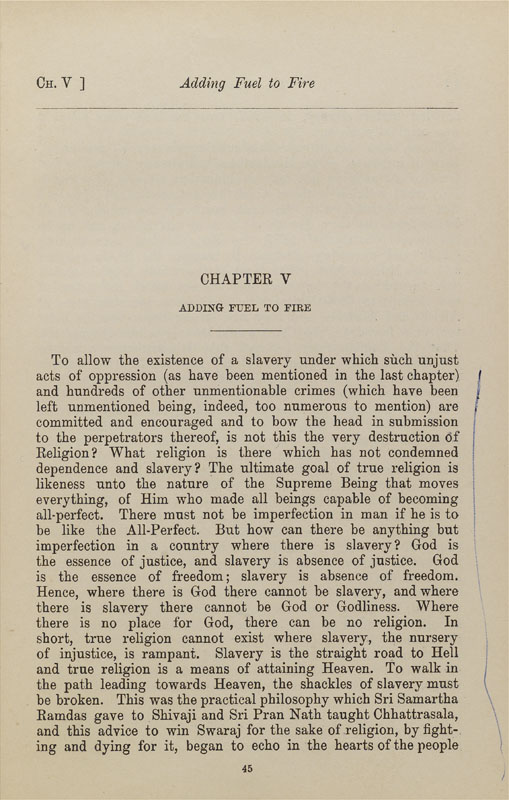Ch.V ]
Adding Fuel to Fire
CHAPTER V
ADDING FUEL TO FIRE
To allow the existence of a slavery under which stich unjust
acts of oppression (as have been mentioned in the last chapter)
and hundreds of other unmentionable crimes (which have been
left unmentioned being, indeed, too numerous to mention) are
committed and encouraged and to bow the head in submission
to the perpetrators thereof, is not this the very destruction of
Religion? What religion is there which has not condemned
dependence and slavery? The ultimate goal of true religion is
likeness unto the nature of the Supreme Being that moves
everything, of Him who made all beings capable of becoming
all-perfect. There must not be imperfection in man if he is to
be like the All-Perfect. But how can there be anything but
imperfection in a country where there is slavery? God is
the essence of justice, and slavery is absence of justice. God
is the essence of freedom; slavery is absence of freedom.
Hence, where there is God there cannot be slavery, and where
there is slavery there cannot be God or Godliness. Where
there is no place for God, there can be no religion. In
short, true religion cannot exist where slavery, the nursery
of injustice, is rampant. Slavery is the straight road to Hell
and true religion is a means of attaining Heaven. To walk in
the path leading towards Heaven, the shackles of slavery must
be broken. This was the practical philosophy which Sri Samartha
Ramdas gave to Shivaji and Sri Pran Nath taught Chhattrasala,
and this advice to win Swaraj for the sake of religion, by fight¬
ing and dying for it, began to echo in the hearts of the people
45
|








